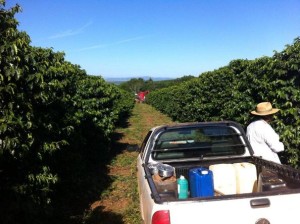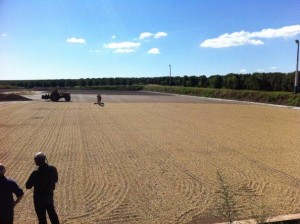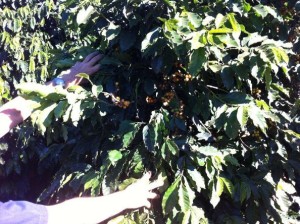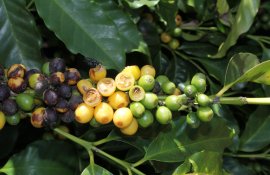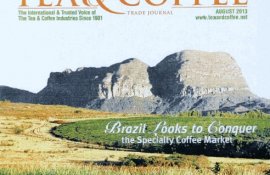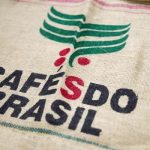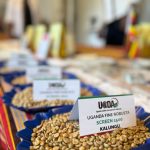Brazilian Harvest Season
Dear Coffee clients and friends,We are now in the middle of the Brazilian coffee harvest season and there are many events to report on.
The first and most impactful event was the out of season rains, more than 3 major winter fronts carrying rains over the Arabica and Conilon coffee regions happened from late May to the end of June, a fourth rain front came in mid-July.
These rains caused numerous problems; delayed harvest, appearance of mold fungi in the raisin hanging fruits, excess humidity under the trees and over-maturation diminishing the quantity of cherries for pulped natural preparation.
In the middle of June, a series of hail storms hit the Mogiana and South of Minas shredding leaves and dropping fruits to the ground, tons of ripe fruit, are now to be considered sweepings with hard cup quality.
Only now, in early August, are we able to address the cup quality issue with more base and measurable results.
Unfortunately, the amount of sound fruits/beans that have been downgraded in aspect and mainly cup quality is greater than the first optimistic forecasts.The excess of humidity, return of rains in the last 10b days of July, rather hot climate in-between, has promoted the spread of hard, Rio and rank rio cups in areas and plantations otherwise known for exquisite Fine cup quality.
The micro and macro climates were one this year, all across the coffee belt, in a condition much lesser than the minimum needed to preserve quality.
Bacteria and fungi attack on hanging and grounded fruits has been immense and even in cases where there is no damage to be seen, beans are turning bad in cup.
Another bad effect of the excess rains, quick maturation under humid conditions and out of season high temperatures in between rains is the reduction of pulped natural preparations.
With coffees jumping from cherry state to raisin and semi dry under the rainy periods of May and June, the harvest had to be interrupted periodically and fewer coffees could be pulped.
The hopes for additional Natural preparation with Strictly Soft – Fine Cup remains depending on further dry weather for the remaining South of Minas and Mogiana areas but “mostly ” for the Greater Cerrado Zone.
We at Wolthers Companies consider this crop 2012/13 to be 25% higher than the 2011/12 crop.The increase is based on the bi-annual yield behavior of the Brazilian plantations but also due to an extra input of technology and higher yield varietals being introduced on a re – planting model.
Brazil continues to lose coffee planted areas, it is now less than 2.15 million hectares and falling, on the other hand, productivity is on the rise, from 13 bags per hectare 13 years ago to 22 bags in 2010 and now at 25 bags per hectares in 2012.
The reasons for the decline in planted area are:
– Crop competition with other great cash crop alternatives such as sugar cane, cotton, corn, soya and others.
– Energy resource forestation, hardwood and original reforestation are other factors consuming available land.
– Environmental laws claiming the replacement of natural flora and protecting the water resources will consume at least another 150.000 hectares which carries coffee trees today.
– High labor cost, social laws and the evident increase of education opportunities and urban quality of life.
Our 2012/13 crop figures:
Arabica 36 .5 million 60 KG/132.28 lbs. bags
Conilon 17.3 million 60 KG/132.28 lbs. bags
Total: 53.8 million bags.

Santos Beach and port exit far left, where the fine Brazilian coffees leave the country towards the most demanding markets.
– Not more than 3.5 million Arabica bags will be fine cupping Pulped Natural preparation
– Not more than 16 million Arabica bags” including the pulped naturals” will be “Strictly Soft/Fine Cup and better”
– The remaining 20.5 million Arabica bags, most will be of lower cup grade increasing the % of Rain damaged, Hard and Rio cups.
In other words, a difficult crop to work with, a year we will probably want to forget as soon as we get to next crop, a year when blend masters and the fewer fine regional and Estate lots will reign.
There are still another 50 days to go with the crop when all will be harvested and dry, let the battle for the true good and great Brazilian coffees begin.
Sincerely,
Christian Wolthers
Category: Archives

